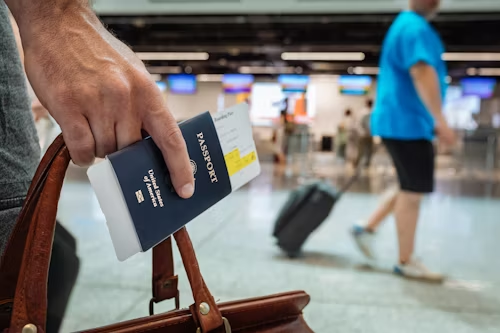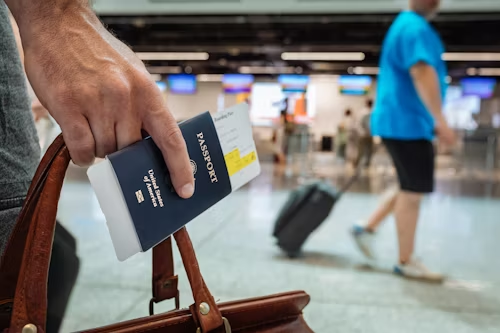Traveling in 2025 is more exciting—and high-tech—than ever before. But with all the innovation comes a dark side: new scams that are catching even the most seasoned travelers off guard. From sneaky tech tricks to revamped classic cons, here are 9 travel scams in 2025 you’ll want to know about before your next adventure. 
1. The “AI Concierge” Scam
Hotels and Airbnbs are now using AI concierges to assist guests. Scammers have started spoofing these services through hacked QR codes or fake interfaces. You think you’re asking for towels—but you’re really giving away credit card info.
2. Digital Taxi Meters
Forget meter tampering—now it’s app-based. Drivers are using altered ride-share apps that show legit routes but inflate fares with hidden fees or rerouted paths. It looks normal… until you check your bank statement.
3. Deepfake Officials
Fake border patrol agents or embassy reps using deepfake videos to “verify” your ID or demand payment for “visa issues.” These videos are so convincing that some travelers have handed over thousands before realizing it’s a scam.
4. Smart Luggage Swaps
Scammers are exploiting high-tech suitcases by swapping yours with a visually identical model embedded with GPS or surveillance tools. You end up carrying a tracking device—or worse, illegal goods—without even knowing.
5. Fake Eco-Tours
With sustainable travel booming, fake “eco-friendly” tours are popping up. These promise off-grid experiences but are nothing more than overpriced van rides to public parks—or completely made-up destinations.
6. Biometric Boarding Cons
Some airports now use face recognition for boarding. Scammers are tricking people into scanning their faces into fake portals outside the airport, capturing biometric data that’s later sold or used for identity theft.
7. Crypto Travel Deals
“Pay with crypto and get 40% off!” they say. In reality, these discounted packages often vanish after payment—or the booking exists, but the hotel’s never heard of you. Since it’s crypto, getting your money back is nearly impossible.
8. Emergency Translation Scam
You’re in a non-English-speaking country and an “official” offers to translate for a fee. In some cases, these translators intentionally mistranslate documents or inflate fines to take a cut—or charge you for something that was free.
9. Social Media Trap
You post about your trip and get a DM from a “travel advisor” or “local guide” offering a private experience. Everything looks real—photos, reviews, profiles—but the link you click steals your data or installs malware.
How to Stay Safe:
Double-check apps and links before clicking
Avoid scanning QR codes from strangers or signs that look tampered
Use VPNs and protect your digital data
Don’t share travel plans publicly online
